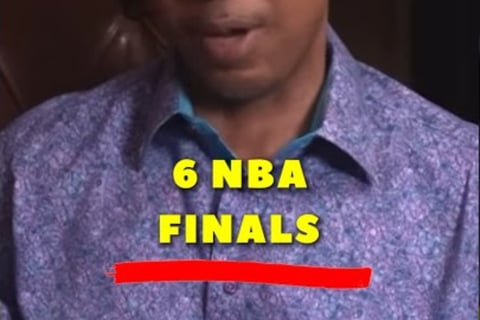Steven A Smith Talks About “Ring Culture”
Create An Account to Leave comments Below
Join the conversation—create an account below to leave a comment and share your feedback on the video.
Also don’t forget to hit the like button.
Is Ring Culture Hurting the Way We Define Greatness?
In today’s sports world, championship rings have become the ultimate validator of legacy. But what happens when that validation overshadows context, nuance, and the reality that team success doesn't always equal individual greatness?
Take Eli Manning, for example. As a Philadelphia Eagles fan, I never feared him. In fact, I welcomed him in our division—because I knew his presence made the NFC East more beatable. Yet here we are, with many calling him a first-ballot Hall of Famer. Why? Two rings.
But let’s look deeper: Eli missed the playoffs more often than not. He led the league in interceptions multiple times. He rarely won his own division. Still, because he won two Super Bowls, he’s now elevated to legendary status. But was he truly legendary—or just surrounded by a defense that rose to the occasion when it mattered most?
Eli Manning didn’t beat Tom Brady. His defensive line did. Holding a Brady-led offense to 14 and 17 points would give any quarterback a chance. That's not greatness—it's great timing and even better defense.
Now compare that to someone like Allen Iverson—a generational talent, an MVP, and one of the most influential players in basketball history. No rings. Does that mean he wasn’t great?
This is where ring culture fails. In team sports, winning a championship depends on far more than just the player. GMs, coaches, front office decisions—they all matter. Players today know that. That’s why so many have taken control of their careers, playing part-time GM like LeBron or Kevin Durant. The media called Durant’s move to Golden State “the weakest ever.” But in hindsight, it was smart. He saw the game the media was playing—validating greatness through rings—and played it better than anyone.
It’s the same reason why Jalen Hurts already has more playoff success than Josh Allen: not necessarily because he’s better, but because Howie Roseman is a better GM. It’s not just about talent—it’s about situation.
Even the legends aren’t exempt from this conversation. Would Jordan have been Michael Jordan without Scottie Pippen? Maybe. But maybe not. Dan Marino never won a ring. Does that diminish his brilliance? Or does it expose how incomplete ring culture truly is?
In some cases—like Michael Jordan’s—rings do validate greatness. But in others—like Eli Manning’s—they distort it.
Ring culture has made players chase legacy through the lens of championships alone, and that’s dangerous. Because not all rings are created equal, and not all greatness can be measured by jewelry.
Still wondering how rings affect legacy? Check out Stephen A. and Shannon’s take on LeBron vs. Jordan

